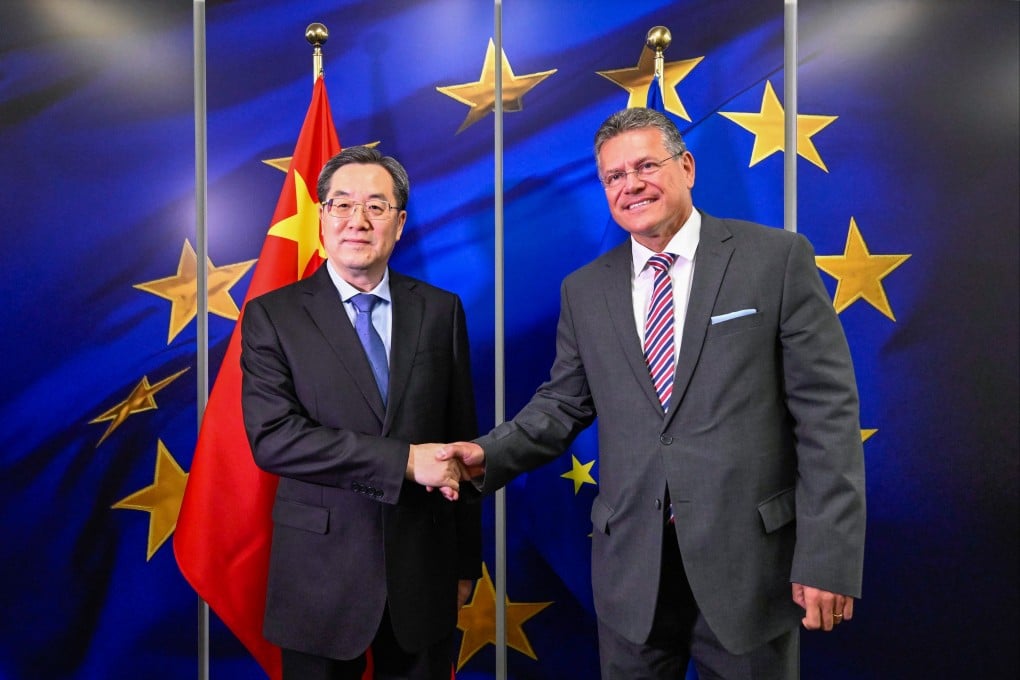Advertisement
China calls EU tariff hikes ‘protectionism’, urges talks to resolve EV dispute
- Extra EU duties on Chinese EVs ‘not conducive to the EU’s green transformation’, Vice-Premier Ding Xuexiang tells climate talks in Brussels
Reading Time:3 minutes
Why you can trust SCMP
53

China has slammed EU tariffs hikes as “protectionism”, with Vice-Premier Ding Xuexiang calling for dialogue to resolve their dispute over Chinese-made electric vehicles.
Co-chairing bilateral climate talks in Brussels on Tuesday, Ding urged the 27-nation bloc to remove barriers on China’s green products, citing shared “extensive common interests and broad space for cooperation” in green transformation.
“Electric vehicles are iconic products in the green and low-carbon transformation of energy,” he told the fifth High-Level Environment and Climate Dialogue between China and the European Union.
“The EU’s imposition of additional tariffs on Chinese EVs is a typical example of protectionism, which is not conducive to the EU’s green transformation and undermines global cooperation in combating climate change,” the first-ranking vice-premier was quoted as saying by Chinese state news agency Xinhua.
Ding ranks No 6 in China’s Communist Party hierarchy and is a member of its all-powerful Politburo Standing Committee.
Advertisement
.jpg?itok=Qexy_wA0)